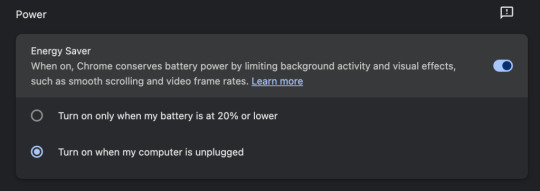#OpenWeb
Explore tagged Tumblr posts
Text
Contenuti open web per AI generativa

Secondo il leader di Microsoft AI fare scraping dei contenuti dell'open web è accettabile. Mustafa Suleyman, ha recentemente suscitato parecchio clamore per via della sua interpretazione della proprietà intellettuale nell'era del web aperto. Mustafa Suleyman, capo della divisione dedicata all'intelligenza artificiale di Microsoft, ha recentemente suscitato parecchio clamore per via della sua interpretazione della proprietà intellettuale nell'era del web aperto. Durante un'intervista con CNBC, condotta da Andrew Ross Sorkin, Suleyman ha espresso la convinzione che una volta pubblicato un contenuto sul web aperto, esso diventi di fatto "freeware", ovvero libero da qualsiasi vincolo di copyright, rendendolo liberamente copiabile e utilizzabile da chiunque. La sua affermazione ha sollevato questioni correlate alla legalità dell'uso dei dati da parte delle aziende dedicate all'intelligenza artificiale, in particolare riguardo alla formazione dei modelli di AI generativa. Microsoft, insieme alla sua partner OpenAI, è attualmente oggetto di multiple cause legali che accusano le due aziende di utilizzare contenuti protetti da copyright per addestrare i loro modelli di AI. Di fronte a tali contestazioni, le dichiarazioni di Suleyman possono apparire come una difesa delle pratiche aziendali. Nel diritto statunitense, la creazione di un lavoro comporta automaticamente la protezione attraverso il copyright, la quale non viene annullata dalla semplice pubblicazione online. In realtà, è così complicato rinunciare a tali diritti che sono state create delle licenze web speciali per facilitare la gestione di questi contenuti. Il concetto di "uso lecito" o fair use, per esempio, non è determinato da un "contratto sociale", ma viene stabilito da una corte, che valuta vari aspetti come la natura del materiale copiato, il motivo della copia, la quantità di contenuto utilizzato e l'eventuale danno all’autore originale. Suleyman ha anche fatto riferimento, nel corso dell'intervista, all'idea dei robots.txt come metodo per indicare agli algoritmi di scraping di non utilizzare i dati di un sito. Questi file .txt servono a comunicare quali bot possono o non possono eseguire lo scraping delle informazioni di un sito web. Tuttavia, i files robots.txt non hanno valore legale, ma rappresentano piuttosto un accordo di cortesia presente sul web fin dagli anni '90. La questione dei diritti di utilizzo dei contenuti pubblicati online, e delle normative che regolano l'IA, sono temi complessi e attualmente oggetto di numerosi dibattiti e procedimenti giudiziari. L'approccio delle aziende di IA, la loro interpretazione delle leggi e il loro impatto sulle proprietà intellettuali continueranno a essere questioni centrali nel dibattito sull'evoluzione della tecnologia e della normativa in merito. Read the full article
0 notes
Text
Chrome's Energy Saver mode
Chrome Energy Saver mode really saves battery - even on an M-series Mac. #chrome #mac #browser
In case you don’t use this, I highly recommend turning Chrome’s energy saver mode on. It does have an impact, esp when it comes to buttery smooth scrolling. The energy savings are drastic enough that Chrome’s becoming my default browser on my portable again.

View On WordPress
0 notes
Text
Our #AP #openweb reboot is being destroyed by our #fahernistas and #geekproblem
We need to think of a serendipity view of how #hashtags work and how our coder kings implement them. Not saying this is a good aproch… i don’t know… but spelling hashtags “wrong” makes their use in categorization and sorting work differently. Might be worth thinking if this could add value or is purely negative? This depends on different views on federation and ideas of a universal truth or messy…
View On WordPress
0 notes
Text
“Video has come out from Bucks County, Pennsylvania showing a ballot counter destroying ballots for Donald Trump and keeping Kamala Harris's ballots for counting,” an account called “Dan from Ohio” wrote in the comment section of the far-right website Gateway Pundit. “Why hasn't this man been arrested?”
But Dan is not from Ohio, and the video he mentioned is fake. He is in fact one of hundreds of inauthentic accounts posting in the unmoderated spaces of right-wing news site comment sections as part of a Russian disinformation campaign. These accounts were discovered by researchers at media watchdog NewsGuard, who shared their findings with WIRED.
“NewsGuard identified 194 users that all target the same articles, push the same pro-Russian talking points and disinformation narratives, while masquerading as disgruntled Western citizens,” the report states. The researchers found these fake accounts posting comments in four pro-Trump US publications: the Gateway Pundit, the New York Post, Breitbart, and Fox News. They were also posting similar comments in the Daily Mail, a UK tabloid, and French website Le Figaro.
“FOX News Digital’s comment sections are monitored continuously in real time by the outside company OpenWeb which services multiple media organizations,” a spokesperson for the company tells WIRED. “Comments made by fake personas and professional trolls are removed as soon as issues are brought to our attention by both OpenWeb and the additional internal oversight mechanisms we have in place.”
Breitbart replied to WIRED's request for comment in Russian: "Пожалуйста, скажите Newsguard, чтобы они пошли на хуй." In English, this means "please tell Newsguard to go fuck themselves."
The Gateway Pundit and the New York Post did not respond to a request for comment from WIRED.
“The actors behind this campaign appear to be exploiting a particularly vulnerable part of the media landscape,” McKenzie Sadeghi, the AI and foreign influence editor at NewsGuard, tells WIRED. “Comment sections designed to foster reader engagement lack robust security measures, allowing bad actors to post freely, change identities, and create the illusion of genuine grassroots campaigns rather than orchestrated propaganda.”
The disinformation narratives being pushed by these accounts are linked to Storm-1516, according to Newsguard. Storm-1516 is a Russian disinformation campaign with a history of posting fake videos to push Kremlin talking points to the West that was also connected to the release of deepfake video falsely claiming to show a whistlelbower making allegations of sexual assault against vice presidential candidate and Minnesota governor Tim Walz. (WIRED first reported that the Walz video was part of a campaign by Storm-1516. A day later, the US government confirmed WIRED’s reporting.)
Links to the video were posted by multiple accounts with names like “Disobedient Truth” and “Private Patriot” in the comment section of outlets like Breitbart and the Gateway Pundit.
“More bad news for the Dems: Breaking: Tim Walz's former student, Matthew Metro, drops a shocking allegation- claims Walz s*xually assaulted him in 1997 while Walz was his teacher at Mankato West High School,” the comments read.
The links posted in the comments came hours before the video was shared on social media platforms like X, where it racked up millions of views.
After the Bucks County video went viral, researchers quickly traced it back to Storm 1516. US intelligence agencies then confirmed Russia was behind the fake video.
Russian influence operations have, in the past, made use of comment sections to boost their narratives, including during their campaign to disrupt the 2016 elections. This is the first time this tactic has been reported as part of Russia’s efforts to disrupt the 2024 presidential election.
“Replying in threads is a tactic that can have an impact with very little investment,” Darren Linvill, codirector at Clemson University’s Media Forensics Hub, tells WIRED. “By inserting disinformation into an unrelated conversation it might be seen, even if the account being used has no followers and was just created yesterday. It also doesn't matter if the account you are using is caught and shut down because you haven't lost an investment, you can just create another account five minutes later.”
The fake comments, Newsguard found, are also then used in reports from Russian state-backed media outlets to bolster claims about how Western audiences are responding to a particular incident.
After the Trump assassination attempt in July, Tsargrad TV published an article titled “Biden's Trace in Trump's Assassination Attempt. Americans Agree with the Kremlin's Version: ‘Russians Are Right.’” The article outlined how Americans believe that the Biden administration played a part in the shooting, citing “comments to articles in Western media” as evidence.
NewsGuard’s researchers identified 104 articles in Russian state media that cited comments from Western news outlets as evidence to back up their claims between January and August of this year.
“This tactic allows bad actors to reduce the risk of detection and embed propaganda in a subtle, seemingly organic way, blending it into the casual commentary of supposed everyday Western readers,” Sadeghi said. “The repetition of the same claim across multiple formats and contexts can create a sense of familiarity that may lend the narratives an appearance of credibility.”
The network of accounts has also been used to seed other narratives, including one earlier this month where dozens of comments in the New York Post and Breitbart claimed, without evidence, that Ukrainian president Volodmyr Zelensky had used Western military aid to purchase a car that once belonged to Adolf Hitler.
That claim has been spread by the network of inauthentic websites controlled by former Florida cop John Dougan, who now lives in Moscow and runs a network of pro-Kremlin websites. Dougan’s network of websites have previously shared disinformation narratives from Storm-1516.
52 notes
·
View notes
Note
She's bringing him to NYC. Great. Instead of silently supporting Karlie for NYFW, Taylor's pulling this shit, because as a "mastermind", she can't even control the other team to not overreact to rumors. Now it's all hands on deck again to sell it. And I'm supposed to think these empty people, who only chase greed, are out there planning something grand that's gonna turn Hollywood upside down. Give me a fucking break!
Karlie went 3 week post partum to Eras, in a sea of haters Taylor created for her, to support her partner. Taylor can't do the same for Karlie at ONE fashion show, because she's above this. Selling the thing with Travis is more important now. Just go ahead and rival your arch enemy Kim and release a sex tape. I'm sorry Rain for being so heated in your ask, but I'm SO done. I gave this women my money for merch and shit. I feel scammed now when she promotes homophobes and MAGAs. Please don't block me
https://pagesix.com/2024/09/06/celebrity-news/taylor-swift-and-travis-kelce-jet-out-of-kansas-city-after-chiefs-win/#nypost-openweb-conversation
https://x.com/barbiehines/status/1831758522901791177
I only block people who repeatedly want to argue with me on Anon and/or are being a dickhead unnecessarily—take care of yourself & delete the ap for a bit if it’s too much right now—and it is too much WHEW



10 notes
·
View notes
Text
Oh God damn it.
Please boycott Palworld, apparently Pocketpair (devs of Palworld) a few years ago(?) made a party game that hosted a generative ai art model. Fuck that. Those models (Stable diffusion, etc) are created by abusing workers, and use unethical openweb datasets (private medical data, NSFL material, copyrighted material etc all gets used in openweb datasets).
I instantly drop any series that flirts with ai. Why twitter.com waited until Palworld's release to post about the past ai bs is beyond me, I would have liked to know that before purchasing. :/ Palworld was announced YEARS ago.
I had honestly thought Craftopia was the first game Pocketpair released because the YouTube videos I had watched of playthroughs had said it was thier first game release???
And I thought generative ai models were not allowed on steam?!?! apparently Steam changed the rules to allow generative ai models/assets in games, but only if they are tagged as using ai. Ugh. Way to worsen literacy of what ai actually means! (Populating a forest with randomized trees in a video game uses generative ai, but not the unethical kind. Same premise can be done with buildings, etc.)
Sigh. Lesson learned. :( Be sure to dig up the game dev before purchasing. This is so disappointing, I wish I could refund Palworld.
Palworld as is at launch does not seem to use any ai generated art. Generative ai that produce 3d models from text prompts are no where near the quality of the creature models, so it seems all models and animations have been done by hand at least. But with the dev's past history I am very concerned that Pocketpair may incorporate ai or worse, NFTs, into Palworld or future games. :(
So yeah, please don't financially support Palworld. I don't trust Pocketpair.
#Palworld#Pocketpair#pokemon#craftopia#text#long text#shitty ai models need to be shut down already#generative ai models COULD have been made with noncopyright material but nooooo a bunch of idiots scrubbed thr entire internet bc#they couldn't be bothered to ethically source a dataset#not to mention all the underpaid workers who had to see ai generated NSFL content to test prompt quality.#im so tired man.
13 notes
·
View notes
Text

"Repeat a 1,000 times: #Google is an #advertising moloch and #Chrome browser monopolist, NOT your friendly free service provider!
Google is about to smack down on the #OpenWeb, killing it with their so-called "Web Environment Integrity API" #DRM proposal.
"Wanna watch those #Netflix or #Youtube vids? Better have Chrome without #AdBlocker then"
"Here's plenty #ads. Now hand over your #PII so we can grow our #SurveillanceCapitalism empire"
#GiveUpGoogle #DitchChrome
youtube
youtube
#google chrome#google ads#billions of google users warned over dangerous ‘info email’ – don’t let your bank be emptied#google warns billions over ‘money transfer’ attack that empties your bank – how to spot dangerous message#google#advertising#marketing#bill hicks#george carlin#ausgov#politas#auspol#tasgov#taspol#australia#neoliberal capitalism#fuck neoliberals#anthony albanese#albanese government#market capitalization#social marketing#san jose marketing & seo company#digital maketing#advertisers#rp advert#advertisement#old advertisements#vintage advertisements#tumblr advertisements#ads
37 notes
·
View notes
Text
4 notes
·
View notes
Text
WHAT IS AN ART DIRECTOR?
Within the industry, the phrase "art director" has been used indiscriminately. The job of an art director is difficult for many people to adequately define or explain. The role has numerous definitions that can be applied to it. Nonetheless, there are a few essential qualities that an art director must possess. Art directors are typically not at the forefront of execution as compared to designers. Their task is to bring together a multi-perspective environment that is constantly creating new but different ideas and pathways into a single, distinct direction. Art directors are looking at the large picture and asking "why" questions to make sure that the whole picture functions properly as a single, cohesive piece, while designers are busy investigating the project's finer elements, such as "how" those pieces are going to be made.
COLLINS / OPENWEB



INSPIRATION.
I thought COLLINS work for OpenWeb was fascinating. I personally adore minimalism and the design aesthetic that surrounds it. In general, I think it is quite aesthetically beautiful. It is always a difficult but exciting method to update a brand, and it can be reinvented in a variety of original and imaginative ways, depending on how one looks at it. OpenWeb seeks to transform the internet in a time when it has become stagnant due to oversaturation and nearly useless. They wish to provide an a platform free from the distractions that the internet offers so that genuine conversations can take place. Using that friendly and inviting tone, COLLINS was able to discover a path that suited the brand.
The brand's emphasis on textual communication led COLLINS to draw inspiration from early 20th-century print media typeface and design that would appeal to both publishers and readers. I think it's brilliant how they use varied typeface to highlight various viewpoints, and their new logo further demonstrates how self-aware OpenWeb is of their audience. COLLINS describes it as a tale that illustrates how harmony, enlightenment, and exchange can happen within vastly different viewpoints.
GUIDING PRINCIPLES.
Timeless: OpenWeb's simple yet effective brand from its usage of minimalism is able to easily connect and reach their audience, ensuring that the brand will be consistent and easily adaptable for many years to come.
Universal: The internet is a shared space with everyone around the world, the brand doesn't necessarily have any cultural design work behind it, meaning it can be used as a blank slate for everyone. Reducing bias.
Unexpected: OpenWeb isn't trying to distract its audience by using flashy and obnoxious colours. They want real conversations to happen based on various topics and their simple and almost unexpected approach offers a place of refuge.
0 notes
Text
OpenWeb's founding CEO Nadav Shoval

OpenWeb’s founder and CEO, Nadav Shoval, has rejected stepping down after the company’s board of directors named Tim Harvey as the interim CEO, as revealed in a LinkedIn post.
“I have not stepped down as OpenWeb’s CEO,” Shoval stated in his LinkedIn post.
According to a recent Fortune report, the board of directors appointed Tim Harvey, chairman of the content moderation platform, as the new acting CEO earlier this week.
In addition, Shoval said that by announcing a change in leadership rather than addressing conduct issues, the board had violated his employment contract.
I recently informed the company that they breached my contract, which was meant to directly address troubling conduct by the Board of Directors. In his statement, Shoval said, “The Board chose to act against OpenWeb’s best interests by announcing a leadership transition at an unexpected company-wide meeting rather than finding a solution to the problems.
Shoval’s post also emphasized his refusal to accept the board’s decision.
“I do not agree with these actions. I will continue to fight for OpenWeb’s mission and purpose alongside our team,” Shoval reiterated in his post.Read More-https://voiceofentrepreneur.life/
0 notes
Text
Drama at OpenWeb, as a new CEO is announced – and the founding CEO says he’s staying
OpenWeb, a New York startup whose tools help publishers engage users, has a unique problem. Its co-founding CEO reportedly won’t leave, even though it announced a new CEO. According to CTech, on Tuesday, OpenWeb’s chairman, Tim Harvey, sent an email to employees, saying he’s becoming CEO and thanking longtime CEO Nadav Shoval for his “incredible […] © 2024 TechCrunch. All rights reserved. For…
0 notes
Text
A Bright Spark of Hope for the Open Web
Safe & Sound Electric is excited about ActivityPub's potential for a more open internet! We're committed to building a brighter digital future. Join us! #ActivityPub #OpenWeb
Hey there, Safe and Sound Electric checking in! We’re keeping our fingers crossed for ActivityPub. Sure, there might be some hiccups along the way, but the whole idea of a decentralized, user-controlled internet? Now that’s something we can really get behind. You know how they say, “Hope for the best, but prepare for the worst”? Well, we’re definitely feeling that. We know building a truly open…
#ActivityPub#Data Ownership#Decentralized Web#Digital Interactions#electrical safety#Interconnected Networks#Online Communities#Open Web#Sustainability#User Control#Walled Gardens
0 notes
Text
Safari 16.4 is an admission
A great post from Alex Russell about the bevy of new features that landed in Safari 16.4.
View On WordPress
0 notes
Text
does openweb vpn hide your activity
🔒🌍✨ Get 3 Months FREE VPN - Secure & Private Internet Access Worldwide! Click Here ✨🌍🔒
does openweb vpn hide your activity
OpenWeb VPN activity masking
OpenWeb VPN provides users with the ability to mask their online activities by encrypting their internet connection and routing it through a secure server. This process helps users to browse the web anonymously, protecting their privacy and sensitive information from potential cyber threats and surveillance.
When you connect to the internet through OpenWeb VPN, your real IP address is hidden, and your online activity appears to originate from the VPN server's location. This masking of your IP address helps to prevent websites, online services, and malicious actors from tracking your browsing behavior and accessing your personal data.
OpenWeb VPN also encrypts your internet traffic, making it unreadable to third parties like hackers, internet service providers, and government agencies. This encryption ensures that your sensitive information, such as passwords, credit card details, and personal messages, remains secure and private while you are connected to the VPN.
By masking your online activity with OpenWeb VPN, you can bypass restrictions imposed by network administrators or government censors. This enables you to access geo-restricted content, evade internet censorship, and browse the web freely and securely from anywhere in the world.
In conclusion, OpenWeb VPN's activity masking feature offers users a reliable and effective way to protect their online privacy, safeguard their data, and access a free and open internet without constraints. With OpenWeb VPN, you can enjoy a secure and anonymous online experience, knowing that your digital footprint is shielded from prying eyes.
Internet browsing privacy with OpenWeb VPN
OpenWeb VPN is a powerful tool that can help protect your internet browsing privacy. In today's digital age, our online activities are constantly being tracked and monitored by various entities, including government agencies, internet service providers, and online advertisers. This invasion of privacy can lead to targeted advertising, data breaches, and even identity theft.
By using OpenWeb VPN, you can encrypt your internet connection and route it through a secure server, effectively masking your IP address and location. This makes it nearly impossible for anyone to track your online activities or collect your personal data. Whether you are browsing the web, streaming videos, or accessing online banking services, OpenWeb VPN ensures that your sensitive information remains private and secure.
One of the key benefits of using OpenWeb VPN is the ability to bypass geographic restrictions and access region-locked content. By connecting to servers in different countries, you can unblock websites, streaming services, and social media platforms that may be censored or unavailable in your location. This not only enhances your online experience but also protects your freedom of speech and access to information.
In conclusion, OpenWeb VPN is a valuable tool for safeguarding your internet browsing privacy and security. By encrypting your connection, masking your IP address, and bypassing censorship, OpenWeb VPN allows you to surf the web anonymously and freely. Take control of your online privacy today with OpenWeb VPN.
Conceal online action using OpenWeb VPN
Online privacy and security are becoming increasingly important in today's digital age. With the rise of cyber threats and surveillance, it has become essential to protect one's online activities. OpenWeb VPN is a reliable tool that helps users conceal their online actions and safeguard their personal information.
OpenWeb VPN works by creating a secure and encrypted connection between the user's device and the internet. This encrypted tunnel ensures that all data transmitted between the user and the internet is protected from prying eyes. By masking the user's IP address, OpenWeb VPN effectively hides their online actions, making it difficult for third parties to track or monitor their browsing activities.
One of the key benefits of using OpenWeb VPN is the ability to access geo-restricted content. By connecting to servers in different locations, users can bypass censorship and access websites and services that may be blocked in their region. This feature is particularly useful for individuals who travel frequently or live in countries with strict internet regulations.
Moreover, OpenWeb VPN helps users stay anonymous online, reducing the risk of identity theft and data breaches. By encrypting internet traffic, this VPN service adds an extra layer of security to protect sensitive information such as login credentials, credit card details, and personal communications.
In conclusion, OpenWeb VPN is a valuable tool for enhancing online privacy and security. Whether you're browsing the web, streaming content, or accessing sensitive data, using a VPN like OpenWeb can help keep your online activities private and secure. Stay protected and surf the web with peace of mind using OpenWeb VPN.
OpenWeb VPN data protection
In today's digital landscape, protecting your online data is paramount. With the proliferation of cyber threats and the increasing scrutiny of online privacy practices, individuals and businesses alike are seeking reliable solutions to safeguard their sensitive information. Enter OpenWeb VPN, a powerful tool designed to enhance data protection and ensure online anonymity.
OpenWeb VPN operates by creating a secure and encrypted connection between your device and the internet. By routing your internet traffic through a remote server, OpenWeb VPN effectively shields your data from prying eyes, including hackers, government agencies, and internet service providers. This encryption prevents unauthorized access to your online activities, ensuring that your personal information remains confidential and secure.
Moreover, OpenWeb VPN offers additional layers of protection through features such as DNS leak protection and a kill switch. DNS leak protection safeguards against potential leaks of your DNS queries, which could otherwise expose your browsing history to third parties. Meanwhile, the kill switch automatically terminates your internet connection if the VPN connection drops, preventing any unencrypted data from being transmitted.
One of the key advantages of OpenWeb VPN is its commitment to user privacy. Unlike some free VPN services that may compromise your data for profit, OpenWeb VPN operates on a strict no-logs policy. This means that it does not collect or store any information about your online activities, ensuring complete anonymity while you browse the web.
In conclusion, OpenWeb VPN is a reliable solution for anyone looking to enhance their online security and protect their sensitive data. By encrypting your internet connection and prioritizing user privacy, OpenWeb VPN offers peace of mind in an increasingly digital world.
Uncover OpenWeb VPN security protocols
Title: Unveiling OpenWeb VPN Security Protocols: Ensuring Safe Online Connections
In the digital age, safeguarding one's online privacy and security has become paramount. With the proliferation of cyber threats and privacy breaches, utilizing a Virtual Private Network (VPN) has emerged as a popular solution. Among the array of VPN options available, OpenWeb VPN stands out for its robust security protocols, offering users a reliable shield against potential risks.
OpenWeb VPN employs several security protocols to ensure the confidentiality and integrity of users' data during transmission over the internet. One of the primary protocols utilized is the Secure Socket Tunneling Protocol (SSTP), which establishes a secure connection between the user's device and the VPN server. SSTP encrypts the data traffic, preventing unauthorized access and interception by malicious entities.
Additionally, OpenWeb VPN implements the Layer 2 Tunneling Protocol (L2TP) combined with Internet Protocol Security (IPsec) for enhanced security. L2TP/IPsec creates a secure tunnel through which data travels, encrypting it to prevent eavesdropping and tampering. This double-layered approach adds an extra level of protection, ensuring that sensitive information remains confidential.
Moreover, OpenWeb VPN incorporates the highly regarded OpenVPN protocol, known for its strong encryption algorithms and robust security features. OpenVPN utilizes OpenSSL encryption to safeguard data transmission, making it extremely difficult for hackers to decrypt intercepted data packets.
Furthermore, OpenWeb VPN regularly updates its security protocols to stay ahead of emerging threats and vulnerabilities. By continuously enhancing its encryption methods and strengthening its infrastructure, OpenWeb VPN remains at the forefront of safeguarding users' online privacy and security.
In conclusion, OpenWeb VPN's comprehensive security protocols, including SSTP, L2TP/IPsec, and OpenVPN, offer users a reliable and secure means of protecting their online activities. With its commitment to staying abreast of evolving security threats, OpenWeb VPN ensures that users can browse the internet with confidence, knowing that their data is shielded from prying eyes.
0 notes
Text
The #mainstreaming move back to the #openweb is filling with #NGO parasites
https://ngiforum2023.eu/agenda/#day-7232d5d3ef654750bf086e0701cdef3d-161123 This need some concerted activism to hold them to account for the mess they push. Please use the #4opens and try to be polite is my thinking, now where is my shovel?

View On WordPress
0 notes
Text
Custom Generative AI Solutions with Watsonx.ai

Generative AI Effectively
A recent IBV study found that 64% of CEOs are pressured to speed generative AI deployment, and 60% lack a uniform, enterprise-wide process.
Watsonx, an AI and data platform, may help enterprises use foundation models and expedite generative AI adoption.
The newly launched features and capabilities of watsonx.ai include new general-purpose and code-generation foundation models, more open-source model options, and more data and tuning options to increase the business impact of generative AI. These improvements were guided by IBM’s strategic belief that AI should be open, trustworthy, focused, and empowering.
IBM-developed, data-driven foundation models for businesses
Business executives using generative AI require model flexibility and choice. They also require safe access to business-relevant models to speed up value and insights. IBM’s watsonx.ai studio offers a variety of language and code foundation models of various sizes and architectures to assist clients provide performance, speed, and efficiency.
Atsushi Hasegawa, Honda R&D Chief Engineer, believes watsonx.ai is a compelling solution in an environment where system integration and software connectivity are crucial. Its inherent flexibility, rapid deployment, and strong information security make it appealing.”
Watsonx.ai launched with the Slate series of encoder-only models for corporate NLP. We are pleased to offer Granite, our first IBM-developed generative foundation model. A decoder-only design makes the Granite model family ideal for summarization, content creation, retrieval-augmented generation, categorization, and insight extraction.
All Granite foundation models were trained using IBM-curated enterprise datasets. The Granite family of models was trained on enterprise-relevant datasets from five domains — internet, academic, code, legal, and finance — scrubbed for objectionable information and benchmarked against internal and external models to obtain deeper domain expertise. This technique reduces risks so model results may be safely released using watsonx.data and watsonx.governance (coming soon).
Initial IBM Research evaluations and testing across 11 financial tasks show that Granite-13B models can outperform much larger models by training them with high-quality finance data. Financial tasks assessed include sentiment scoring stock and earnings call transcripts, categorizing news headlines, extracting credit risk ratings, summarizing financial long-form content, and answering financial or insurance queries.
Adding openness to IBM AI models
Data provenance, testing, safety, and performance factors are missing from many AI models. Uncertainties can hinder generative AI adoption for many enterprises and organizations, especially in highly regulated industries.
IBM shares the Granite model training data sources today.
Common Crawl
Webhose
GitHub Clean
Arxiv
USPTO
Pub Med Central
SEC Filings
Free Law
Wikimedia
Stack Exchange
DeepMind Mathematics
Project Gutenberg (PG-19)
OpenWeb Text
HackerNews
IBM bases AI development on trust and openness. IBM will protect clients against third-party IP claims against IBM-developed foundation models as a testament to its rigorous development and testing. IBM does not force clients to indemnify IBM for using IBM-developed models, unlike some other Large Language Model vendors. IBM does not cap its IP indemnity liability for IBM-developed models, keeping with its indemnification policy.
We encourage clients to adapt IBM models for downstream activities as they utilize them to generate distinctive AI assets. Clients may ethically leverage their company data to improve model output accuracy and get a competitive edge through fast engineering and tuning.
Helping companies appropriately utilize third-party models
With dozens of open-source big language models, it’s hard to know where to start and which model to use. However, selecting the “right” LLM among hundreds of open-source models needs careful consideration of cost-performance considerations. Since many LLMs are unpredictable, AI ethics and governance should be included in model design, training, tweaking, testing, and outputs.
We established a foundation model library in watsonx.ai for clients and partners because one model won’t do. Starting with 5 handpicked open-source models from Hugging Face, we chose them after thorough technical, licensing, and performance analyses and identifying their optimal use cases.
This month, we introduced Meta’s 70 billion parameter model Llama 2-chat to watsonx.ai studio as an open-source LLM model. To converse and generate code, use Llama 2. It is pretrained with public web data and fine-tuned with human input reinforcement learning. Llama 2 improves virtual agent and chat applications for commercial and research use.
Watsonx.ai now offers BigCode’s StarCoder LLM. The model can explain and answer general code inquiries in natural language using permissively licensed GitHub data as a technical helper. It can also autocomplete, alter, and explain code fragments in natural language.
Third-party model users in watsonx.ai can enable AI guardrails to automatically eliminate objectionable language from input prompts and output.
Reduce model-training risk with synthetic data
Traditional data anonymization can generate flaws that adversely affect outputs and forecasts. By using computer simulation or algorithms to produce synthetic data, companies may fill data gaps and avoid the danger of revealing sensitive data.
Watsonx.ai’s synthetic data generator lets enterprises produce pre-labeled tabular data that retains their enterprise data’s statistical features. Instead of using extended data-collection periods to capture actual data’s enormous variance, this data may be utilized to tweak AI models faster or increase their accuracy by introducing more diversity into datasets. Building and testing models with synthetic data can help firms close data gaps and launch new AI products faster.
Empowering business use cases with fast tweaking
Tuning Studio at watsonx.ai helps business users customize foundation models for Q&A, content production, named entity recognition, insight extraction, summarization, and classification.
The initial Tuning Studio version will offer quick tuning. Advanced prompt tweaking in watsonx.ai (based on 100 to 1,000 samples) lets enterprises adjust foundation models to their own data. Prompt-tuning lets a corporation with minimal data adjust a big model to a small goal, reducing compute and energy cost without retraining an AI model.
Business AI advancement and assistance
IBM Watsonx is a business-focused AI and data platform that helps more people expand and accelerate AI’s impact using trustworthy data. The watsonx architecture allows new business-targeted foundation models like IBM Research’s and third-party models like those on the Hugging Face open-source platform to be seamlessly integrated as AI technologies advance, while providing critical governance guardrails with watsonx.governance.
Watsonx is one of IBM’s generative AI platforms. Over 1,000 IBM Consulting specialists can help customers tune and operationalize models for particular business use cases using generative AI.
0 notes